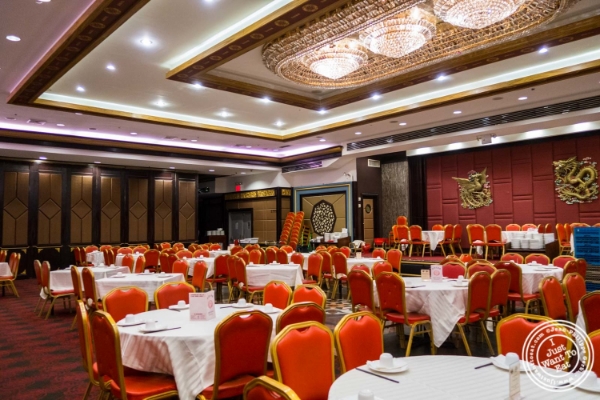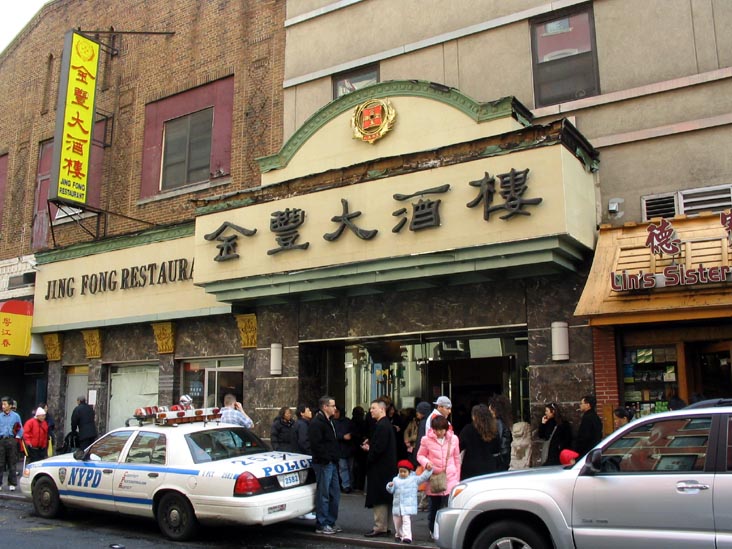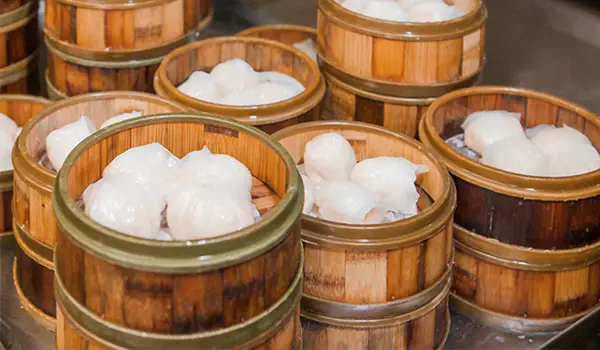
Indoor dining shuttered from March to September and then again from December to February. Their second location on the Upper West Side saw sales dip 20 percent.Īnd things have continued on a difficult trajectory for the restaurant.

We are looking forward to the next chapter at 20 Elizabeth St.,” a representative for Chu told Gothamist in a statement in response to the proposed collective ownership plan.A post shared by Jing Fong Restaurant early March, even before New York’s official shut down order, restaurants in Manhattan’s Chinatown, as well as those Chinatowns in Flushing and Sunset Park, were being disproportionately affected due to racist sentiments and the Trump administration’s use of the term “China virus.” On March 2nd, Jing Fong’s marketing director Claudia Leo told the Post that March events were down 75 percent compared to last year and business was down 50 percent. While we are still in the process of determining what is next for this unique space, there is no doubt that we will require the future tenant to contribute to the vitality and health of our community. “The Chu family has been a part of the Chinatown community for generations – and they always will be. Landlord Jonathan Chu later said through a spokesperson that rent on the space had been kept at the same base rate since 1993, and the Lams haven’t paid rent on the space since March 2020. The Lams were forced to close Jing Fong’s near-empty dining rooms one week before the mandated shutdown in mid-March. The restaurant suffered massive sales declines as early as mid-February 2020 as traffic reduced amid xenophobic and racist reactions to the coronavirus crisis. Sales had plummeted by 85 percent year-over-year in 2020, translating to a loss of $5 to $6 million at the restaurant. It had become impossible to pay rent on the 800-seat dim sum destination during the pandemic, owner Truman Lam told Eater New York in late February.

The Lams announced the decision to close Jing Fong’s dining room in early March the restaurant subsequently downsized to using its kitchen space for takeout, delivery, and outdoor dining only.

The collective ownership idea is the latest news to rise in the wake of Jing Fong’s devastating closure announcement, which sent shockwaves through the industry and sparked a protest in Chinatown over the job losses and the closing of a community landmark. It is unclear how Jing Fong will continue operations out of the kitchen if and when new ownership takes over the lease on the space. “The dining room space has been returned to the landlord and we are operating from the second-floor kitchen for our patio-dining, take-out, and delivery until the end of May.” “We do not have a comment on this plan as we are not involved with it,” a representative for the Lam family said in a statement to AMNY. Mar told Gothamist that the building’s landlords “should immediately sit down with Don and his crew to chart a path for opening a restaurant back up in that space.” The proposed worker-owned restaurant will likely not be able to keep the same name, as the Lam family, which owns Jing Fong, also run a second location on the Upper West Side.

The plan has gained support from Nelson Mar, the president of the union representing dining room staffers from Jing Fong, which was the only unionized restaurant in Chinatown. Community organizer Don Lee told the news outlet that it is not yet clear how much money the organizers will need to raise to set up the new business structure and take over Jing Fong’s lease at 20 Elizabeth Street, but they are hoping that city government will help fund the project. They estimate that it would save about 100 jobs and boost Chinatown’s economic recovery coming out of the pandemic, according to Gothamist. In a press conference outside of Jing Fong last week, members of the restaurant workers union and community organizers outlined the proposed plan, which would see staffers share in ownership of the restaurant. Community organizers and displaced unionized workers from Manhattan Chinatown cornerstone Jing Fong, which permanently shut its dining room earlier this month, have proposed a new plan to bring the restaurant back to life by converting the business to a worker-owned cooperative.


 0 kommentar(er)
0 kommentar(er)
